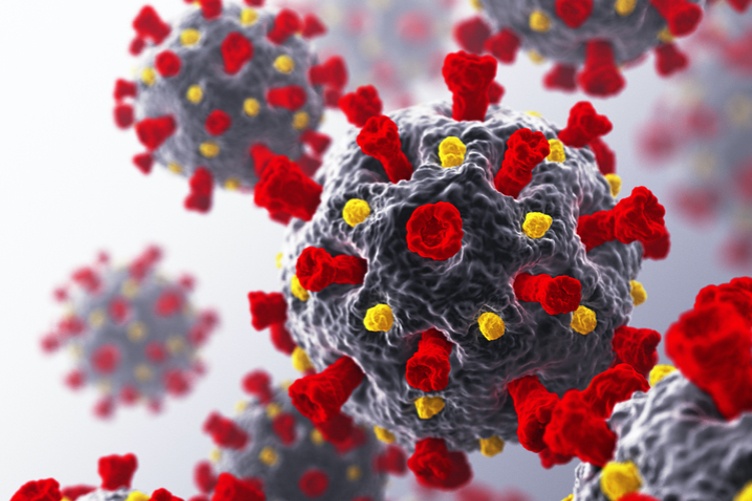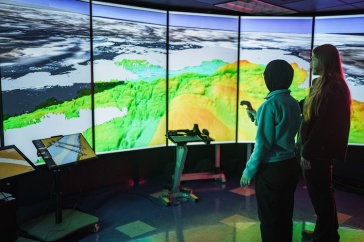
Since mid-March, the Carsey School of Public Policy at UNH has been responding to the COVID-19 pandemic by moving classes online, conducting and publishing research on new and emerging trends related to coronavirus, helping in the policy response, and by assisting communities to safely continue civic life during this period of individual isolation, while also preparing for re-engagement when limitations are lifted.
“As with the rest of UNH, the Carsey School is now teaching its classes online and staff and faculty are working from home,” said Michael Ettlinger, Director of Carsey. “Long-term projects have continued, but much of our effort has shifted. We are working with policymakers and helping inform the response to COVID-19 by conducting research related to the policy, political, health, and social implications. And, through New Hampshire Listens, we’re providing a resource and virtual meeting place that helps to answer how we get through this in our communities and what happens next.”
"We are working with policymakers and helping inform the response to COVID-19 by conducting research related to the policy, political, health, and social implications."
Carsey policy analysis and work with Congress contributed to provisions in the latest stimulus bill that will help address the difficulty faced by smaller small businesses, and women and minority small business owners, in accessing the first round of government subsidized lending.
Carsey’s COVID-19 research has run the gamut from surveys examining how individuals’ news sources and political affiliation affect their behavior in response to the crisis and their perceptions of government responses, to the current and potential impact on rural areas, to the state level economic impact. In all, researchers have produced ten briefs and projects that look at demographic, economic, social, and political trends related to COVID-19.
“In this time of uncertainty, people are seeking answers,” said Jess Carson, research assistant professor at Carsey. “Sharing data-driven insights into the pandemic’s effects on different kinds of communities and families is a responsibility that my Carsey colleagues and I take seriously.”
Some recent Carsey COVID-19 briefs include:
- COVID-19 Economic Impact by State
- Views of a Fast-Moving Pandemic
- Rural Areas with Seasonal Homes Hit Hard by COVID-19
- Distribution of New Hampshire’s Older Population Complicates Health Care Delivery During Coronavirus Epidemic

|
| Screenshot of a recent NH Listens online Roundtable. |
Through the civic engagement program New Hampshire Listens, the Carsey School has engaged with community members throughout New Hampshire and the Northeast. NH Listen’s online Roundtables have provided a venue for people to discuss such topics as how to socially distance while still maintaining a sense of community and how to show appreciation toward essential workers.
“Like most organizations dealing with this crisis, we had to pivot quickly,” describes Michele Holt-Shannon, Director of NH Listens. “After canceling a series of in-person training events, we launched several online Roundtables. We found a real need to provide a place for people to share ideas on things like ‘How do we stay connected while quarantining?’ and ‘How should we prepare for when the quarantine ends?’”
“It’s important that we support New Hampshire communities’ focus on equity and engagement, especially during a pandemic,” Holt-Shannon added. “Our events, and the work of Carsey overall, continue that mission.”
“These are very difficult times where we are all dealing with isolation, many are dealing with tragedy, the public policy response is chaotic, and there is much that is unknown,” said Ettlinger. “The Carsey School’s mission is to take on tough societal challenges. We have no medical doctors at the Carsey School and we don’t know how to make ventilators, but we are contributing in the ways we can: offering policy guidance in our areas of policy expertise, both publicly and privately; researching the impact of COVID-19 and response of individuals and society so that decisions can be better informed; and bringing people together, virtually, to strengthen their communities.
“We all hope that we get to the end of this soon with as little personal tragedy and economic and societal damage as possible,” he added. “Until then, we are contributing through continuing our classes online, our policy and research response, and helping communities continue to be communities.”
You can find additional information on the Carsey School’s COVID-19-related research and outreach initiatives on its COVID-19 webpage.
-
Written By:
Nicholas Gosling '06 | COLSA/NH Agricultural Experiment Station | nicholas.gosling@unh.edu

















































